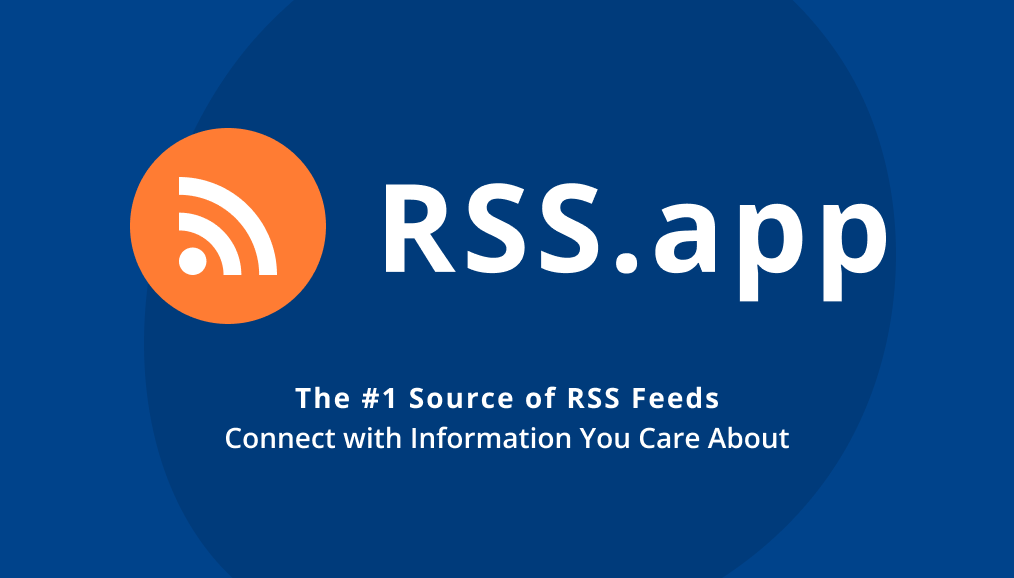
Introduction to Boston University
Boston University (BU), established in 1839, is a prestigious private research university located in the heart of Boston, Massachusetts. With a rich history that spans over 180 years, BU has earned a reputation for academic excellence and innovative research. Originally founded as a Methodist seminary, the institution has transformed significantly, expanding its mission and becoming a leading center for higher education both nationally and internationally.
The university’s mission statement reflects its commitment to fostering a diverse and inclusive learning environment. Boston University aims to create an intellectually challenging atmosphere that encourages students to aspire to achieve their fullest potential. The university offers a wide range of undergraduate and graduate programs across various disciplines, including liberal arts, science, engineering, business, and health sciences, to meet the evolving needs of a globalized society.
Boston University plays a significant role in the educational landscape, serving over 33,000 students from all 50 states and more than 130 countries. This diverse student body not only enriches the campus community but also contributes to the global perspective that BU promotes. The vibrant campus life at Boston University is characterized by a variety of extracurricular activities, organizations, and events that engage students both academically and socially. From cultural festivals to athletics, BU provides numerous opportunities for students to connect and grow outside the classroom.
Overall, Boston University stands as a beacon of learning and research, with its commitment to academic excellence and community engagement. Its history, mission, and campus life collectively contribute to its esteemed position as one of the leading institutions in higher education today.
Recognizable Alumni from Boston University
Boston University has a rich history of producing notable alumni who have made significant contributions across various fields, including politics, entertainment, business, and the sciences. Noteworthy figures such as Coretta Scott King, the civil rights activist and widow of Martin Luther King Jr., graduated from Boston University with a master’s degree in social work. Her time at the university was instrumental in shaping her advocacy work, as it provided her with the educational foundation and social awareness necessary for her lifelong commitment to social justice.
Another distinguished alum is actor and filmmaker Marisa Tomei, known for her Academy Award-winning role in “My Cousin Vinny.” Tomei, who graduated from Boston University with a degree in drama, credits her time at the university with honing her skills and broadening her artistic perspective. The vibrant arts scene in Boston and the academic rigor of BU helped her launch a successful acting career, allowing her to make significant contributions to the entertainment industry.
In the realm of technology and business, we find Juliette Sullivan, an influential tech entrepreneur and CEO of a successful startup. Sullivan earned her MBA from Boston University, where she cultivated essential business skills and networked with future industry leaders. Her experience at BU not only helped her gain expertise in management and innovation but also inspired her to foster inclusivity within the tech community.
Finally, the realm of science boasts alumni like Dr. Robert W. Wilson, who achieved fame as an astrophysicist and Nobel Prize winner. He attributes his foundational knowledge in science to the rigorous education he received at Boston University. His contributions to the field of radio astronomy and his breakthroughs in understanding the cosmic microwave background have made lasting impacts on our comprehension of the universe.
These examples illustrate the far-reaching effects of a Boston University education, highlighting how the institution has played a pivotal role in guiding its graduates toward successful and impactful careers.
Innovative Programs at Boston University
Boston University is renowned for its commitment to academic excellence and innovation across various disciplines. The institution has developed a range of innovative programs designed to equip students with the skills needed to excel in an ever-evolving job market. These programs encompass a broad spectrum of subjects, from technology and business to health sciences and humanities, reflecting the diversity and interdisciplinary nature of contemporary education.
One of the standout features of Boston University is its emphasis on experiential learning. Programs such as the Integrated Studies Program allow students to engage with real-world challenges while collaborating with peers and industry professionals. This hands-on approach not only enhances learning outcomes but also fosters critical thinking and problem-solving capabilities that are essential for today’s workforce.
Moreover, Boston University offers cutting-edge courses in emerging fields such as data science, artificial intelligence, and environmental sustainability. These courses are tailored to meet the demands of a global economy that increasingly requires expertise in innovative technologies and sustainable practices. For instance, the Data Science Program combines rigorous training in mathematics, statistics, and computer science, enabling graduates to analyze vast amounts of data effectively and make informed business decisions.
The university also emphasizes research-driven education, providing students with opportunities to participate in groundbreaking research projects. Through initiatives like the Undergraduate Research Opportunities Program, students can work alongside esteemed faculty members on initiatives that address pressing societal issues, thereby gaining valuable experience and insights into their chosen fields.
In conclusion, the innovative programs offered at Boston University not only enhance the academic landscape but also prepare students for the complexities of the future workforce. By integrating a comprehensive educational approach with practical experience, Boston University stands out as a leader in cultivating the next generation of professionals equipped to tackle tomorrow’s challenges.
Top Undergraduate Courses at BU
Boston University (BU) offers a diverse range of undergraduate courses designed to equip students with essential knowledge and skills across various disciplines. The university’s commitment to academic excellence is reflected in its comprehensive curriculum, which emphasizes critical thinking, creativity, and practical application.
One of the standout programs is the College of Arts & Sciences, featuring courses in Psychology, where students delve into human behavior and mental processes. The objectives of this course include fostering an understanding of various psychological theories and methodologies, enabling students to apply this knowledge in real-world contexts. Reviews from students highlight the engaging lectures and supportive faculty, which greatly enhance the learning experience.
An additional program worth noting is the Questrom School of Business, where students can participate in courses such as Strategic Management. This course aims to develop strategic thinking and decision-making skills essential for future business leaders. Through case studies and group projects, students learn to analyze complex business scenarios and devise innovative solutions. Current students often praise the collaborative atmosphere and the practical insights gained from experienced professionals teaching in the program.
Furthermore, the College of Communication provides an in-depth exploration of Media Studies, focusing on the rapidly evolving landscape of digital communication. Students engage with topics such as media ethics, emerging technologies, and audience analysis. Feedback from alumni emphasizes the course’s relevance in today’s job market, preparing graduates for successful careers in various communication fields.
Overall, Boston University’s undergraduate courses are meticulously designed to foster intellectual growth and practical skills. With a commitment to a well-rounded education, BU empowers students to pursue their passions while gaining valuable insights and experiences necessary for their future endeavors.
Popular Graduate Courses at BU
Boston University (BU) offers a diverse range of graduate courses that cater to the academic and professional aspirations of its students. With a strong emphasis on research opportunities and specialization, BU’s graduate programs attract individuals looking to deepen their knowledge and skills within their respective fields. One of the most sought-after programs is the Master of Business Administration (MBA), which is designed to equip students with essential leadership and management skills necessary for navigating today’s competitive business landscape. The program combines rigorous academic coursework with practical experiences, including case studies and internships.
Another popular choice is the Master of Public Health (MPH), which prepares students to address public health challenges through a comprehensive curriculum focused on epidemiology, biostatistics, and health policy. This program attracts candidates dedicated to improving community health outcomes and pursuing meaningful careers in public health sectors. Furthermore, Boston University’s School of Social Work offers a highly regarded Master of Social Work (MSW) program that emphasizes practical training and community engagement, making it a favorite among students keen on making a societal impact.
Additionally, the College of Engineering at BU provides advanced degrees in various engineering disciplines, including Biomedical Engineering and Computer Engineering. These programs are particularly attractive to students eager to work on innovative technologies and solutions that address current industry challenges. Graduate courses at Boston University are tailored to meet the changing demands of employers while fostering a collaborative environment among faculty and peers. This balance of academic rigor and real-world application is a significant factor that draws graduate students to Boston University, positioning it as a leader in graduate education.
Campus Resources Supporting Education
Boston University is renowned for its commitment to providing a comprehensive educational experience. A vital aspect of this commitment is the availability of various campus resources designed to enhance student learning and facilitate personal development. One of the key resources that Boston University students benefit from is its extensive library system. The Howard Gotlieb Archival Research Center, along with the main Mugar Memorial Library, offers a wealth of academic materials, research databases, and digital archives, serving as a cornerstone for students engaged in independent study and research. These facilities are not merely repositories of knowledge; they are active environments where students can collaborate, innovate, and discover.
In addition to libraries, Boston University is home to numerous specialized research facilities that cater to a wide range of academic disciplines. For example, the College of Arts and Sciences operates several state-of-the-art labs that support scientific research and innovation. This focus on research not only enhances the learning experience but also prepares students for future careers in academia or industry by providing hands-on experience in their respective fields.
Moreover, the university offers robust tutoring and academic support services. The Academic Success Center hosts tutoring sessions and workshops that empower students to enhance their study skills, master course content, and improve academic performance. Access to personalized academic advising is another significant resource at Boston University. Advisors are available to assist students in devising course schedules, exploring degree options, and making informed decisions about their educational pathways, which can significantly affect their long-term career goals.
In conclusion, the diverse and extensive resources at Boston University play a crucial role in shaping a supportive academic environment. By providing access to libraries, research facilities, tutoring centers, and academic advising, the institution fosters both educational and personal growth among its students.
Experiential Learning Opportunities
Boston University (BU) is committed to providing its students with a comprehensive educational experience that extends beyond traditional classroom settings. One of the defining features of a Boston University education is the multitude of experiential learning opportunities available to its diverse student body. These opportunities are not only designed to enrich academic learning but also to equip students with practical skills that are highly sought after in the job market.
Internships play a crucial role in allowing students to gain hands-on experience in their respective fields. Boston University facilitates numerous internship placements in various industries, providing students the chance to connect with potential employers while applying their academic knowledge in real-world situations. These internships often lead to full-time job offers post-graduation, underscoring the direct correlation between these experiences and career success.
Cooperative education programs (co-ops) are another essential part of the experiential learning framework at Boston University. Through these programs, students alternate between periods of classroom study and full-time employment. This unique model not only enhances students’ learning by allowing them to apply theory to practice but also strengthens their professional networks and experiences significantly.
In addition to internships and co-ops, Boston University offers a robust array of study abroad programs. These programs enable students to immerse themselves in different cultures and educational systems, broadening their global perspectives. Engaging in international experiences can also help students develop critical skills such as adaptability and cross-cultural communication, which are invaluable in today’s interconnected world.
Research projects, another pillar of experiential learning at BU, allow students to work closely with faculty members on innovative and impactful research initiatives. This participation fosters a deeper understanding of subject matter while encouraging analytical thinking and problem-solving skills. As students engage in these research opportunities, they also contribute to the university’s reputation as a leader in various academic fields.
Student Life and Extracurricular Activities
Student life at Boston University is characterized by a vibrant array of extracurricular activities and organizations that cater to diverse interests and foster a strong sense of community among students. With over 400 student organizations, Boston University offers something for everyone, ranging from academic and professional groups to cultural organizations and recreational clubs. This extensive selection encourages students to engage with their peers, explore new passions, and develop their leadership skills.
The university’s emphasis on a well-rounded college experience is evident in its commitment to encouraging students to participate in activities outside of the classroom. Many students find that joining organizations such as the Student Government, entrepreneurship clubs, or various cultural associations significantly enriches their time at Boston University. These extracurricular activities not only provide opportunities for personal growth but also enhance academic learning by allowing students to apply theories in real-world situations.
Moreover, Boston University promotes health and wellness through its numerous recreational activities. The fitness center and various sports clubs, including intramural leagues, provide students with outlets to stay active and healthy, which is crucial in maintaining a balanced college lifestyle. Events such as the annual Boston University Springfest further contribute to an engaging campus atmosphere, helping students build lasting friendships and create cherished memories.
A diverse arts and cultural scene also flourishes at Boston University, with opportunities for students to participate in theatre productions, music ensembles, and art exhibitions. This combination of academic rigor and extracurricular engagement enables students to cultivate a sense of belonging and fosters a supportive community, making their journey at Boston University both fulfilling and memorable.
Conclusion: Why Choose Boston University?
Boston University (BU) is recognized as a leading institution in higher education, distinguished by its accomplished alumni and prestigious academic programs. The university’s commitment to fostering an environment of innovation and research excellence is evident in its ability to attract top-tier faculty, diverse student bodies, and extensive resources. Each of these elements culminates in an academic experience designed to prepare students for the challenges of the modern world.
The array of programs offered at Boston University spans a wide range of disciplines, ensuring that there is something for every aspiring scholar. From the sciences to the arts, BU provides a comprehensive curriculum underpinned by a rigorous approach to education. The university’s emphasis on experiential learning enables students to gain practical experience, equipping them with the skills necessary to excel in their chosen fields. This integration of theory and practice is a hallmark of the Boston University approach, setting its graduates apart in a competitive job market.
Furthermore, the achievements of Boston University alumni serve as a testament to the quality of education received at the institution. Graduates have gone on to make significant contributions across various sectors, demonstrating leadership and innovation. The collaborative spirit fostered within the university fosters lifelong connections that extend beyond the classroom, enriching the professional networks of its students.
As prospective students consider their options for higher education, Boston University stands out as a destination where academic rigor meets real-world application. The university not only provides a comprehensive educational experience but also nurtures the development of future leaders. Therefore, for those seeking a transformative educational journey, Boston University merits serious consideration as their next step in academic and personal growth.




Leave a Reply